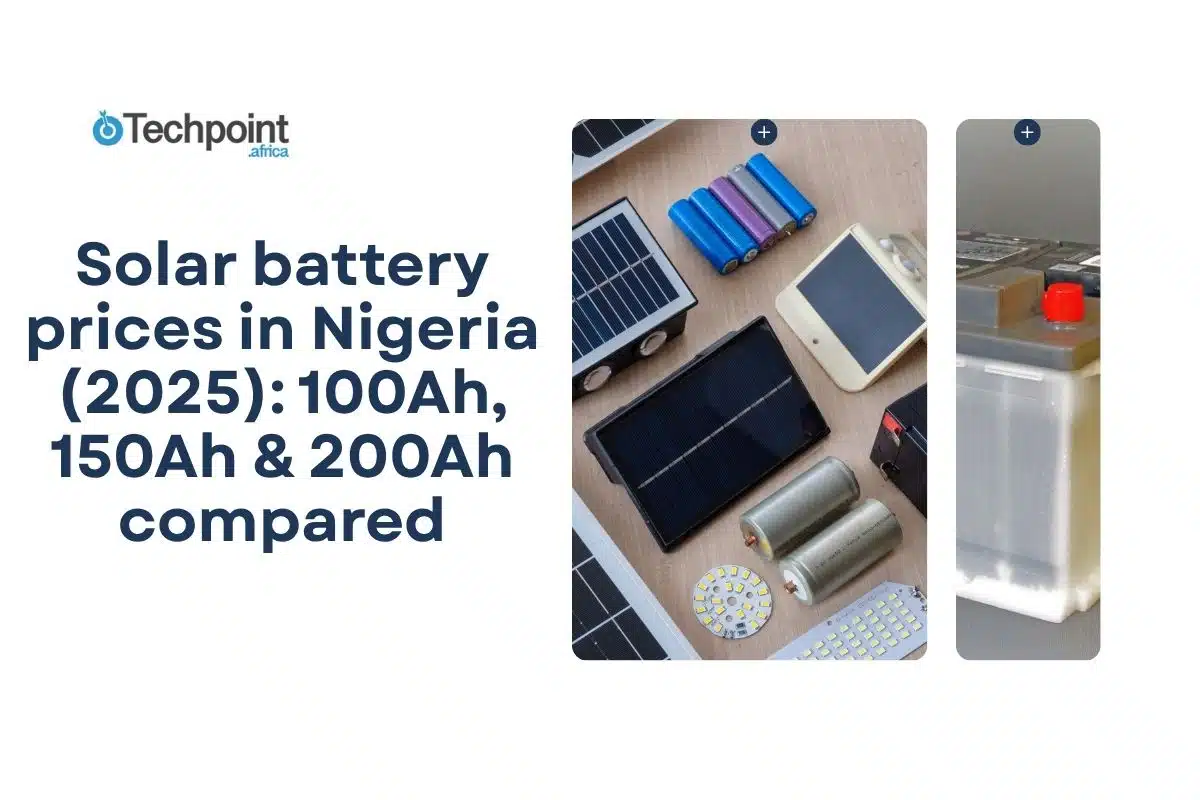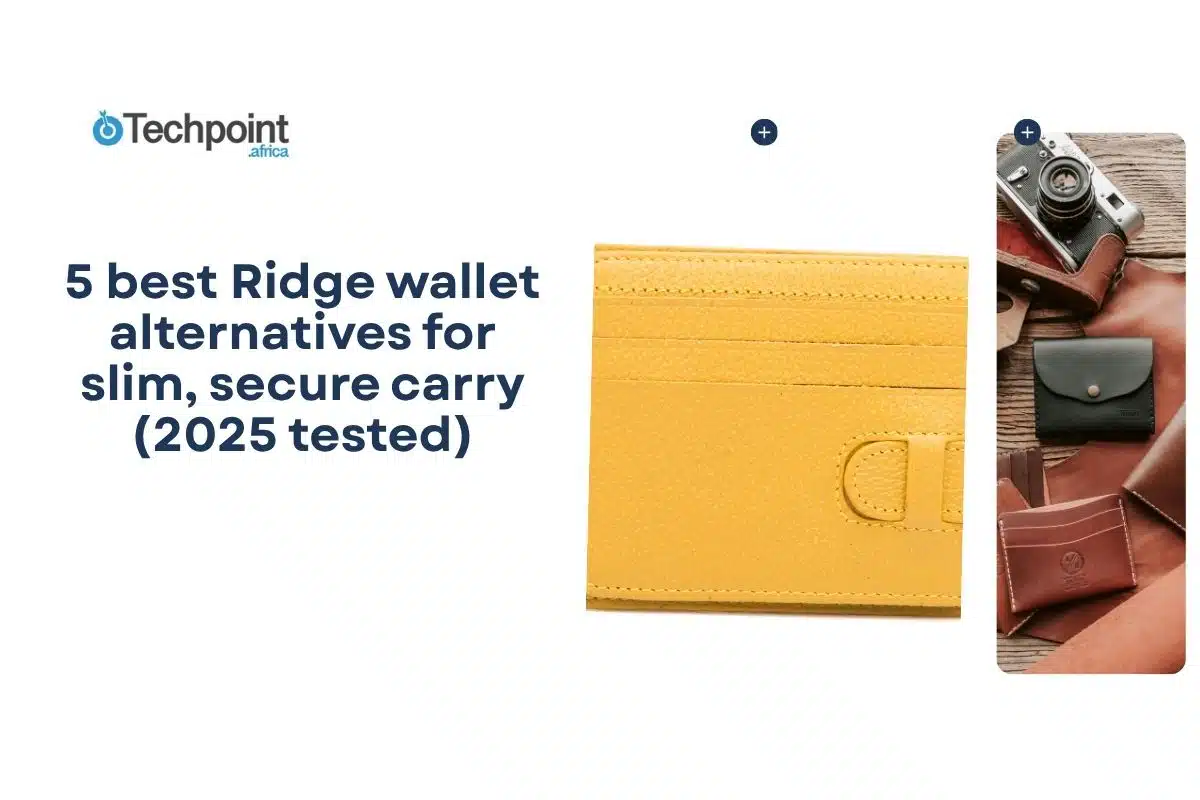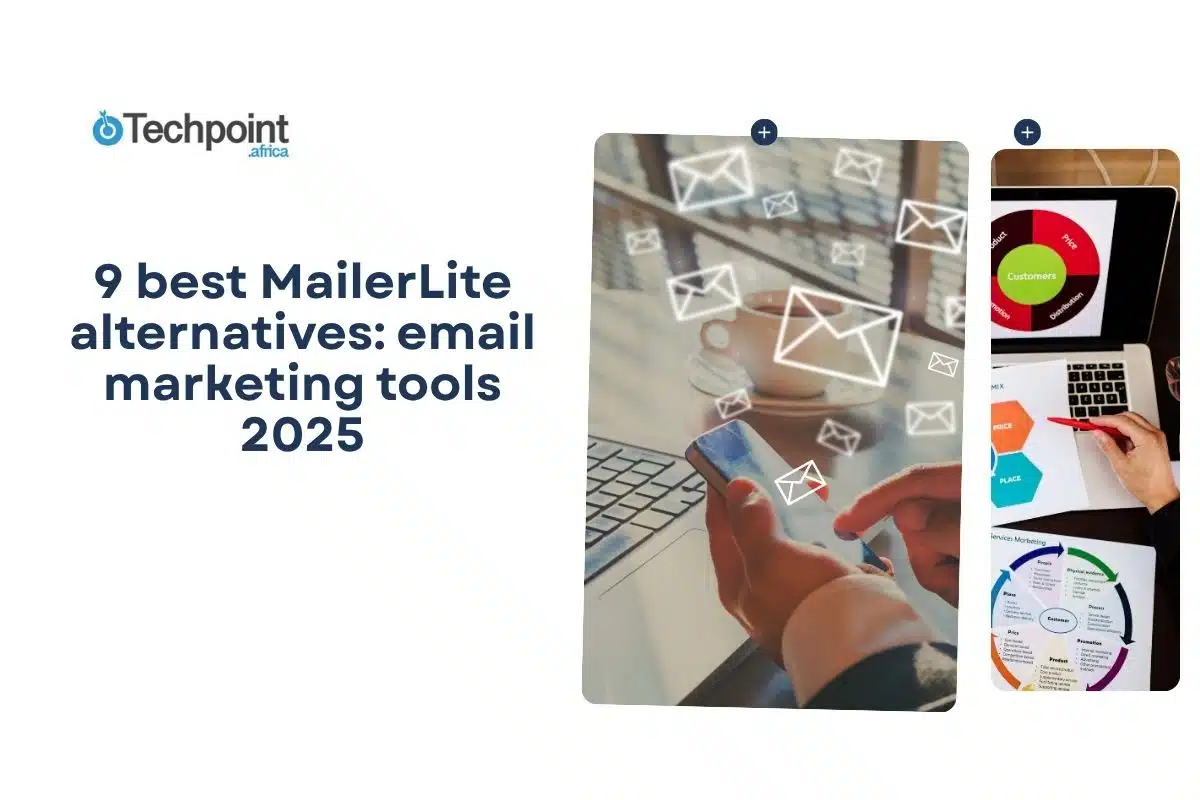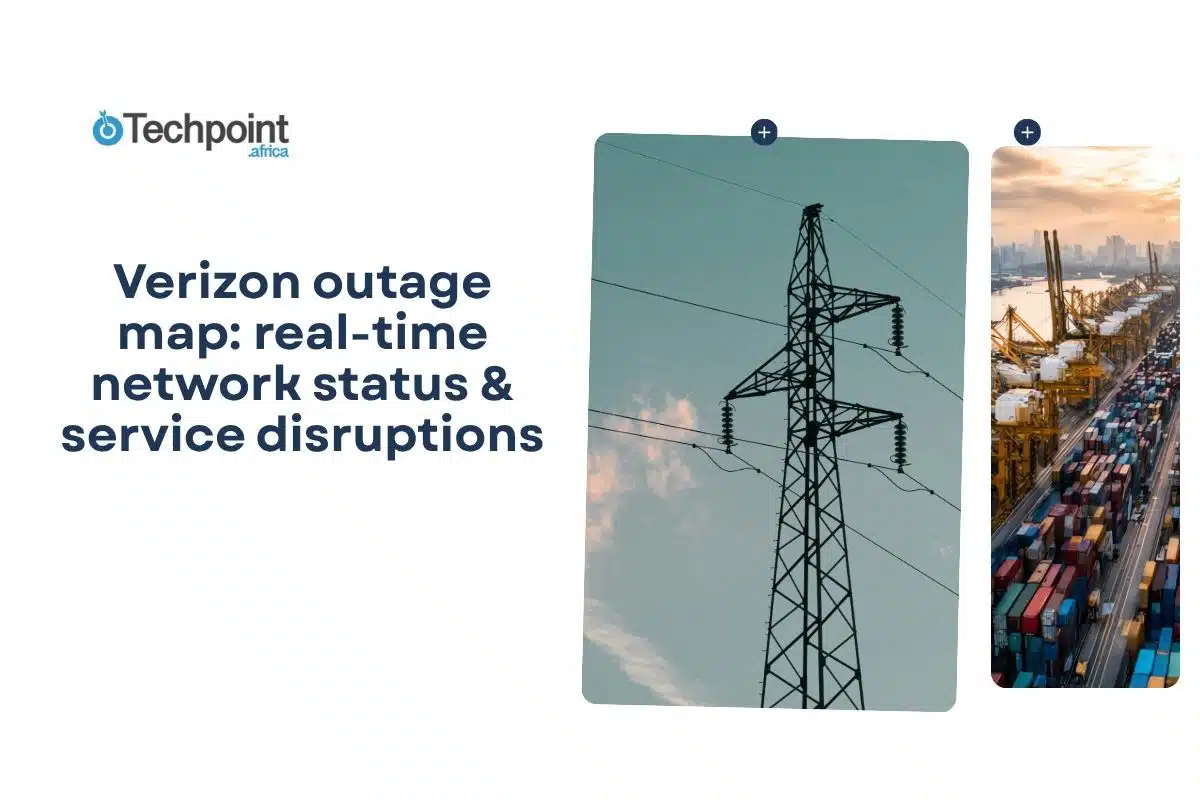If you’re thinking of switching to solar, one of the first big questions you’ll probably ask is: “How much does a solar battery really cost in Nigeria?” And you’re not alone. With the rising cost of diesel and constant power cuts, more Nigerians are turning to solar systems. But the battery, which stores your energy, is often the priciest component.
The challenge is that prices are all over the place. One seller quotes ₦120,000, another says ₦350,000, and you’re left wondering what’s real, what’s used, what’s new, and what’s worth your money.
We’ve done the digging for you, comparing 100Ah, 150Ah, and 200Ah batteries across platforms like Jiji, Facebook Marketplace, Temu, AliExpress, and local Nigerian stores. Whether you’re looking for brand-new, UK-used, or Nigerian-used options, you’ll find actual listings, price trends, and value tips here to help you buy smart.
Let’s get started!
Disclaimer
Prices listed here are based on actual online listings as of June 2025. They may vary depending on location, seller, battery brand, and market fluctuations like FX rates and import duties. Always double-check with the seller before making a purchase.
How we collected these prices
We searched across major online platforms like Jiji, Facebook Marketplace, Temu, AliExpress, and trusted Nigerian solar stores. We focused on the most common battery sizes, which include 100Ah, 150Ah, and 200Ah. We then compared prices for brand-new, UK-used, and Nigerian-used options. Listings were selected from multiple cities (like Lagos, Abuja, Ibadan, and Port Harcourt) to give you a realistic view of what solar batteries actually cost across Nigeria today.
200- 240 Ah solar battery price in Nigeria
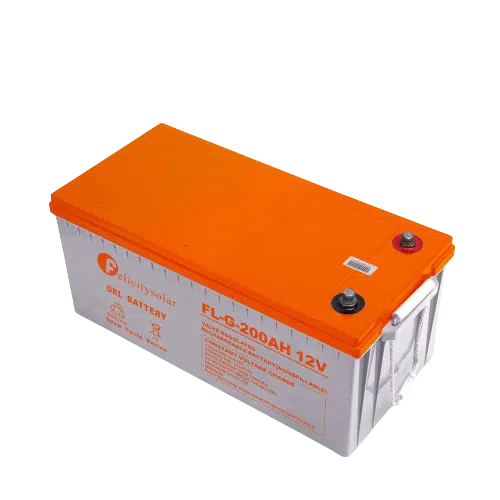
When it comes to powering an average Nigerian home that includes fridge, lights, fans, and maybe a TV, the 200 – 240Ah batteries are often the go-to. It’s one of the most requested sizes when building a solar setup that actually lasts through the night.
But the price is a different story. Two sellers can quote different amounts for the exact same brand. So, the prices you’ll see below are ranges picked based on real listings from across Nigeria.
200- 240Ah Price Ranges (June 2025)
| Battery Brand or types | Condition | Voltage | Platforms | Price Ranges |
| Felicity Lithium Battery Gel / Dry | Brand New | 12V | Jiji | ₦205,000 – ₦330,000 |
| Felicity Lithium Battery Gel / Dry | Brand New | 12V | Facebook marketplace | ₦265,000 – ₦360,000 |
| Felicity Lithium Battery Gel / Dry | Brand new | 12V | Local Solar Dealers | ₦290,000 – ₦450,000 |
| Felicity Lithium Battery Gel / Dry | Brand new | 12V | Jumia | ₦340,000 – ₦420,000 |
| Felicity Lithium Battery Gel / Dry | Brand new | 12V | Felicity Solar official site | ₦378,000 |
| Felicity Lithium Battery Gel / Dry | Used | 12V | Facebook marketplace | ₦130,000 – ₦190,000 |
| Felicity Lithium Battery Gel / Dry | Brand new | 24V | Jiji | ₦1,150,000 – ₦1,360,000 |
| Felicity Lithium Battery Gel / Dry | Brand new | 24V | Facebook marketplace | ₦1,250,000 – ₦1,450,000 |
| Felicity Lithium Battery Gel / Dry | Brand new | 24V | Jumia | ₦1,380,000 |
| Felicity Lithium Battery Gel / Dry | Brand new | 24V | Local sellers | ₦1,250,000 – ₦1,380,000 |
| Matrix Tubular | Brand new | 12V | Jumia | ₦297,000 – ₦385,000 |
| Matrix Tubular | Brand new | 12V | Jiji | ₦160,000 – ₦290,000 |
| Matrix Tubular | Brand new | 12V | Facebook marketplace | ₦200,000 – ₦265,000 |
| Matrix Tubular | Brand new | 12V | Local sellers | ₦170,000 – ₦345,000 |
| Rubitec Gel/dry | Brand new | 12V | Jiji | ₦265,000 – ₦320,000 |
| Rubitec Gel/dry | Brand new | 12V | Facebook marketplace | ₦200,000 – ₦320,000 |
| Rubitec Gel/dry | Brand new | 12V | Local sellers | ₦220,000 – ₦320,000 |
| Unbranded (Used) | UK/ Nigerian used | 12V | Facebook marketplace | ₦110,000 – ₦150,000 |
| LiFePO₄ (e.g. RoyPow, JYC) | New (import) | 12V | Temu/AliExpress | ₦500,000 – ₦600,000+ |
| LiFePO₄ (e.g. RoyPow, JYC) | New (Import) | 24V | Temu / AliExpress | ₦580,000 – ₦650,000+ |
If you’re new to solar shopping, you’re probably wondering:
“Why is the same 200Ah battery ₦205k in one place and ₦450k somewhere else?” Let’s break down what’s happening behind the prices:
Felicity Solar Batteries Have the Widest Price Spread
- 12V Gel/Dry batteries go from ₦205,000 (on Jiji) to as high as ₦450,000 (via local dealers or Jumia).
- This wide gap is usually due to battery grade, batch year, Kwh, and warranty terms. Lower-priced ones are often older stock or no-warranty deals.
- If buying from Felicity’s official website, expect to pay ₦378,000, but you’ll get authenticity and warranty.
Used Felicity 12V batteries on Facebook go for ₦130k–₦190k. But expect a shorter lifespan.
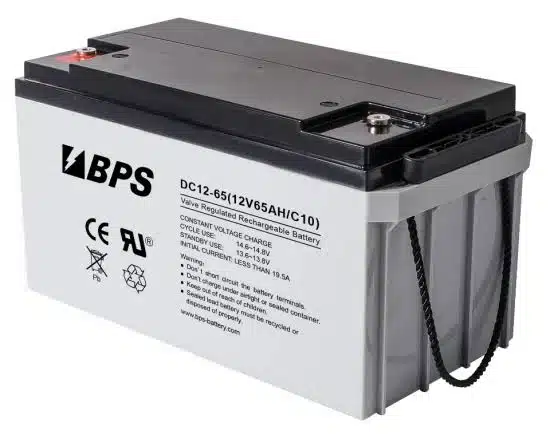
24V Batteries Are a Premium Market
- Felicity 24V 200Ah lithium batteries sit at ₦1.15M–₦1.45M depending on platform.
- These are heavy-duty batteries often paired with larger 3kVA–5kVA inverters.
- Sellers on Jumia and Facebook are pricing similarly, so it really comes down to who offers better shipping, support, or warranty
Matrix and Rubitec Tubular Batteries Have Mid-Range Pricing
- Matrix 12V units go from ₦160,000 on Jiji to ₦385,000 on Jumia.
- Facebook Marketplace and local dealers offer better mid-range pricing (₦200k–₦265k).
- Rubitec sits comfortably in the ₦220k–₦320k range across platforms with slightly cheaper deals on Facebook.
These are good choices for homes with moderate energy needs and budget-conscious buyers.
UK/Nigerian-Used Batteries Are Budget Options
- The ₦110k–₦150k range is tempting, but these are usually “no history” batteries with no way to verify how long they’ll last.
- Great for very light use or short-term backup, but you’ll likely need a replacement within months.
Imported LiFePO₄ Batteries Are the Future, But You’ll Pay for It
- On Temu and AliExpress, LiFePO₄ 12V batteries start from ₦500k+, while 24V options climb to ₦650k+, import expenses excluded
- These are ultra-reliable, long-life batteries (up to 10 years), but you need to account for shipping, customs, and compatibility.
Prices vary widely based on the platform, warranty, and battery condition. Jiji and Facebook Marketplace offer cheaper deals, but they often come with trade-offs like no warranty or older stock. Jumia and official sites may cost more, but they offer peace of mind through verified products and better support. In short, cheaper isn’t always better because paying extra could mean longer battery life and fewer headaches.
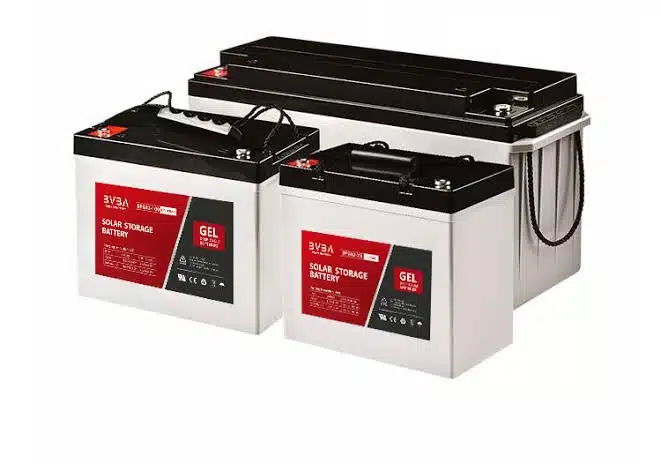
150 Ah solar batteries in Nigeria: price overview
If you’re considering a 150Ah solar battery for your home or small office energy setup, you’re right in the sweet spot. These batteries offer a balance between capacity and cost, making them ideal for moderate power needs like running lights, fans, routers, TVs, and even small fridges during outages.
In Nigeria’s market, 150Ah batteries are widely available in both gel, AGM, and tubular types, with a growing presence of LiFePO4 imports on platforms like Temu and AliExpress. Pricing varies depending on the brand, condition (new, used, or UK used), and source — from local dealers to online platforms like Jiji, Facebook Marketplace, Jumia, and more.
To help you make an informed decision, here’s a breakdown of real-time price ranges across popular platforms:
130- 150Ah Battery Price (June 2025)
| Battery Brand or types | Voltage | Condition | Platform | Price Ranges |
| Sunfit Deep Cycle | 12V | Brand new | Jiji | ₦80,000 – ₦235,000 |
| Sunfit Deep Cycle | 12V | Brand new | Jumia | ₦130,000 – ₦156,000 |
| Sunfit Deep Cycle | 12V | Brand new | Local retail | ₦140,000 – ₦200,000 |
| Fullriver AGM | 12V | New | SolarKobo | ₦145,000 |
| Luminous Tubular | 12V | New | SolarKobo | ₦320,000 |
| LiFePO4 (RoyPow, JYC, etc.) | 12V | Brand new | Temu/AliExpress | ₦140,000 – ₦190,000* |
| Generic / Tubular Batteries | 12V | Used | Facebook marketplace/ local sellers | ₦80,000 – ₦120,000 |
What These Prices Mean
- Temu and AliExpress offer competitive rates for lithium options (LiFePO4), but the final cost may rise due to international shipping and clearance fees. They’re best for buyers comfortable with import logistics.
- Facebook Marketplace is the go-to for budget-conscious buyers or those looking for UK/Nigerian used batteries. But caution is key. Theres short or no warranty, possible wear, and unpredictable lifespan.
- Jiji and Jumia cater to a wide budget range, with batteries starting from ₦195,000. However, Jiji listings may vary drastically based on location, seller credibility, or negotiation room.
- Local dealers like SimbaDen or dedicated solar shops (e.g., SolarKobo) offer brand assurance and customer service, but they tend to be on the higher end of the pricing spectrum.
The 150Ah category remains one of the most popular in Nigeria’s residential solar scene — big enough for meaningful backup, but small enough to remain affordable. When shopping, go for well-reviewed brands like Luminous, Kstar, or Fullriver for longevity. Also, always ask about warranty (especially on Facebook or Jiji).
If you’re importing, do your homework on customs fees and battery standards (e.g., lithium compliance). Most importantly? Buy what suits your actual power need, not just what’s trending.
100Ah Solar Batteries in Nigeria: Price Overview
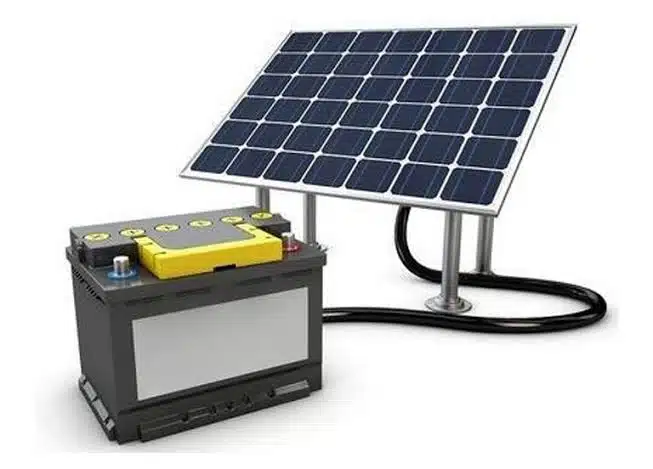
If you’re just getting started with solar or running a light-load system, 100Ah batteries are a solid entry point. They’re typically used to power essentials like light bulbs, a few fans, or a TV for several hours. They’re also a go-to option for people looking to combine multiple batteries in series for flexibility.
In the Nigerian market, 100Ah batteries are available in both tubular and sealed maintenance-free (SMF) types. While they’re more affordable compared to higher capacities, prices can still swing widely depending on the brand, condition, and seller.
Below is a price breakdown from various platforms and sellers, including Jiji, Facebook Marketplace, Jumia, Temu, and local dealers:
100Ah Battery Price (June 2025)
| Brand or types | Voltage | Condition | Platform | Price |
| Prudent inverter battery | 12V | Brand new | Jiji | ₦130,000 – ₦145,000 |
| Vitra, Crocs | 12V | New | Jiji | ₦65,000 – ₦100,000 |
| GBM & Mercury Elite | 12V | Brand new | Jumia | ₦158,000 & ₦255,000 |
| Felicity Lithium | 48V | New | Jumia | ₦1,440,000 – ₦1,480,000 |
| Deep Cycle | 12V | New | Jumia | ₦135,000 – ₦145,000 |
| Lento Tubular, deep cycle, prudent | 12V | Brand new | Facebook marketplace | ₦120,000 – ₦170,000 |
| LiFePO4 (Generic Imports) | 12V | Brand new | Temu/AliExpress | ₦105,000 – ₦180,000 |
| Tubular (Unbranded) | 12V | Used | Facebook marketplace | ₦50,000+ |
| Lento Tubular, deep cycle, prudent | 12V | Brand new | Local sellers | ₦90,000 – ₦190,000 |
Note: Temu and AliExpress prices do not reflect customs or delivery fees.
What These Prices Mean
- Jiji and Facebook Marketplace remain the top spots for mid-range and used options. If you’re willing to negotiate, you might shave off a few thousand naira.
- Temu and AliExpress are pushing LiFePO4 alternatives, which are more efficient but pricier and again, shipping and customs will apply.
- Jumia and local dealers fall on the premium end of the spectrum but might offer better after-sales support or warranty coverage.
100Ah batteries are perfect for budget-conscious homeowners or renters who want to power a few essentials. They’re also ideal if you’re building your solar setup in phases, you can start with one and expand later.
However, because these batteries are smaller in capacity, the price-per-amp-hour is actually higher than larger ones. So, if you can stretch your budget a bit, you may get better long-term value from 150Ah or 200Ah batteries.
In all, 100Ah is a safe and smart place to begin. Just make sure you’re buying from credible sellers and that the battery specs align with your inverter and load needs.
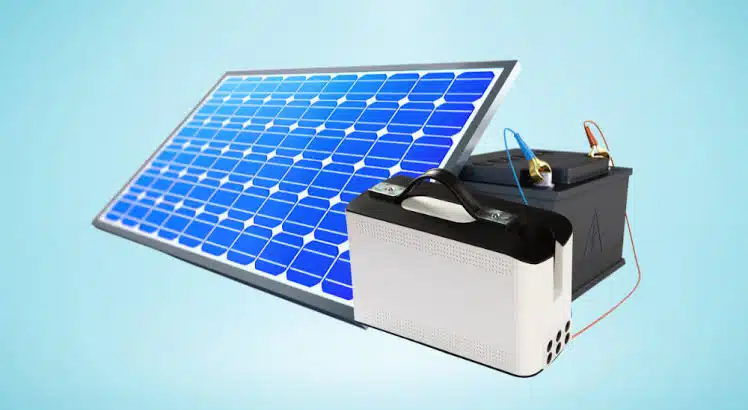
Final thoughts
Shopping for solar batteries in Nigeria right now feels a bit like walking through Balogun market. It’s loud, crowded with choices, and prices flying in every direction.
But once you sift through the noise, a few things become clear: 100Ah and 150Ah batteries are great for starters or light setups. 200Ah steps into the big leagues. They are costlier, yes, but far more reliable for heavier loads. And while platforms like Jiji and Facebook Marketplace offer tempting deals, don’t skip on due diligence.
In the end, buying a solar battery is less about grabbing the most hyped brand and more about asking, “What do I really need, and who can I trust to deliver it?” When you find that sweet spot between budget and performance, the return on investment, financially and mentally, is worth every naira.

